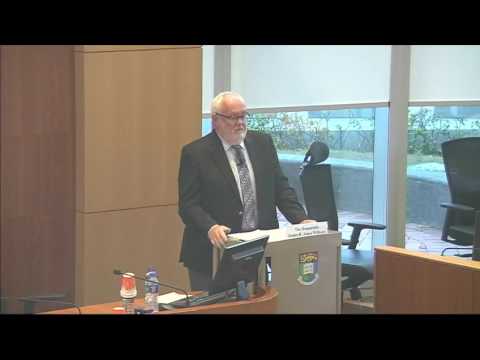Date: 30Mar 2017
A wide variety of reports have identified problems with private family law process as including (1) cost; (2) complexity; (3) divisiveness; (4) legal uncertainty; (5) delay; (6) the difficulties self-represented litigants have dealing with a system that is based; and (7) on one having legal representation and difficulties the “system” has adjusting to the increasing numbers of self-represented litigants.
How can courts and Judges respond to these concerns? What is the role of Case Management in addressing these concerns?
The Honourable R. James Williams is a Justice of the Supreme Court of Nova Scotia’s Family Division and an Associate Director of the National Judicial Institute. He has served as one of the principle architects of family law education in Canada during his distinguished career.
Before graduating from Dalhousie’s law school, he earned a bachelor’s degree in psychology from the University of Alberta and a master’s degree from the Maritime School of Social Work. He has authored influential decisions, introduced widely adopted legal innovations and collaborated with organizations outside the legal system to better serve families.
Justice Williams has also excelled in educating fellow justices and others in the legal profession. He led the development of the National Judicial Institute’s Family Law Program for judges and has lectured on matters of family law at Dalhousie, the University of Alberta, the University of Hong Kong and the University of Australia. He has served as Host Chair for the World Congress on Family Law and Children’s Rights and delivered speeches to the Association of Family and Conciliation Courts and the Canadian Bar Association.




